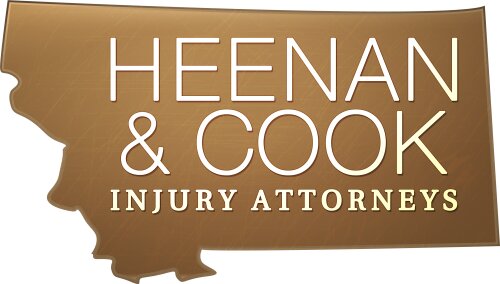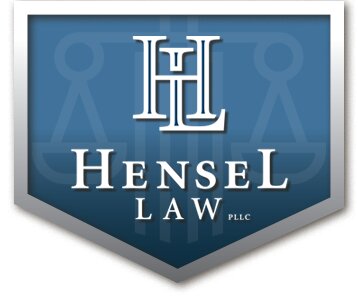Best Defamation Lawyers in Billings
Share your needs with us, get contacted by law firms.
Free. Takes 2 min.
List of the best lawyers in Billings, United States
1. About Defamation Law in Billings, United States
Defamation in Billings, Montana, generally covers false statements about a person or business that harm reputation and are communicated to someone else. The law distinguishes libel (written statements) from slander (spoken statements). In Montana, defamation claims arise mainly from common law, guided by constitutional protections for free speech. Essential elements typically include a false statement of fact, publication to a third party, fault by the defendant, and damages to the plaintiff.
Truth is the central defense to defamation. If a statement can be proven true, most defamation claims fail. Opinions may be protected, especially when it is clear that the statement is an opinion rather than a factual assertion. Privilege applies in certain contexts, such as official proceedings or fair reporting of public issues. When a defendant is a public figure or the matter involves public concerns, the standard for fault may require proof of actual malice or reckless disregard for the truth.
In practice, most defamation matters in Billings are resolved in Montana state courts, typically in Yellowstone County District Court or the corresponding county court that handles civil matters. Remedies include monetary damages for harm and, in some cases, injunctions or retractions. The rise of online platforms has made defamation more complex, as statements can travel quickly and cross state lines.
"The First Amendment protects free speech, yet it does not shield false statements presented as facts that harm a person’s reputation."
For reference on constitutional protections of speech, you can review the First Amendment text at National Archives.
2. Why You May Need a Lawyer
Defamation cases involve complex interplay of facts, law, and local court rules. A Montana attorney with experience in civil litigation can help you assess your options and navigate the process. Below are concrete scenarios where seeking legal help is advisable in Billings.
- A local business in Billings faces a social media storm after a rival posts false accusations of fraud that drive away customers.
- A Billings physician is publicly accused of medical negligence in a community blog, harming patient intake and reputation.
- A local nonprofit leader is the subject of an online article alleging illegal activities, affecting donations and volunteer engagement.
- A public official in Billings is labeled corrupt in a series of online posts during an election, raising questions about accountability.
- A real estate agent is slandered in a neighborhood online forum with unverified claims about licensing or ethics, harming sales.
- A local newspaper publishes a faulty report about a business partnership, and the affected party seeks damages and retractions.
In these situations, a legal professional can help you determine whether a defamation claim is viable, identify potential defenses, and advise on whether to pursue settlement or litigation.
3. Local Laws Overview
Defamation claims in Billings are shaped by federal and Montana law. The following are key references you may encounter when researching or consulting with an attorney.
Federal framework: First Amendment to the United States Constitution
The First Amendment protects free speech and a free press, but it does not provide immunity for knowingly false statements causing harm. In defamation cases involving public figures or matters of public concern, the plaintiff must show fault and actual malice or reckless disregard for the truth. This federal standard still allows state courts to adjudicate defamation claims under state law.
State framework: Montana Constitution
Montana's Constitution protects freedom of speech and press within the state. While it reinforces First Amendment principles, Montana courts apply state-defamation principles to determine remedies and defenses for false statements. This constitutional backdrop informs how Montana courts balance reputation against speech.
Statutory framework: Montana Code Annotated (MCA) and Civil Procedure
Montana defamation claims are addressed in the state’s civil procedure framework, which governs filing, service, discovery, and trial. The Montana Code Annotated provides the general rules for civil actions, including defamation, and directs procedural steps for plaintiffs and defendants. For specific language, consult the Montana Legislature's statutes database.
Note on timelines: Montana generally imposes a statute of limitations for civil defamation claims, commonly understood as two years, though exact timing can depend on how the claim arises and the facts involved. Always verify the precise period with a local attorney, as missteps can bar a claim.
Important official resources for statutes and court processes include the Montana Legislature and the Montana Judicial Branch. See the official sites listed below for precise text and current updates.
4. Frequently Asked Questions
What is defamation in Billings, Montana?
Defamation is a false statement presented as fact that harms someone’s reputation and is communicated to a third party. Truth and protected opinions are defenses in most cases. Elements and defenses are shaped by Montana and federal law.
How do I file a defamation case in Billings?
Consult an attorney who handles civil defamation matters. Your lawyer will identify the proper district court, prepare pleadings, and guide you through discovery and potential settlement or trial.
When does a defamation claim expire in Montana?
Montana generally follows a two-year statute of limitations for civil defamation claims. Exact timing depends on facts and state law, so confirm with an attorney early in the process.
Where should I file a defamation case in Billings?
Claims are typically filed in Yellowstone County District Court or the appropriate Montana district court with jurisdiction over the defamed party and where the statements were published.
Why should I hire a defamation lawyer in Billings?
A local lawyer understands Montana procedure, local court rules, and how the bills and fees work in civil cases. An attorney can evaluate defenses, damages, and potential settlement options.
Can I sue for defamation if the statements were true?
No. Truth is a complete defense to defamation. If a statement is true, it generally cannot support a defamation claim.
Should I settle or go to trial?
Settlement can often resolve reputational harm quickly and with lower costs. Trials may be necessary to establish fault or damages, but carry higher time and expense.
Do I need to prove malice if the defendant is a public figure?
Yes, for public figures you typically must show actual malice or reckless disregard for the truth to prevail in a defamation claim.
Is there a difference between libel and slander in Montana?
Libel refers to written statements, while slander refers to spoken statements. Both are defamation, and Montana courts consider the same elements for each form.
How much can I recover in a defamation case?
Damages typically include economic losses and non-economic harms such as harm to reputation. Punitive damages may be available in some circumstances, depending on fault and proof.
How long does a defamation case take in Montana?
Timeline varies widely. Small claims or early settlements may finish in months, while complex trials can take a year or more, depending on discovery and court schedules.
Do I need a local attorney for a defamation case?
Yes. Local attorneys understand Yellowstone County practices, local judges, and the nuances of Montana defamation law. They can help avoid procedural mistakes.
What is the difference between a legal remedy and an injunction in defamation cases?
A legal remedy typically means monetary damages. An injunction can barring further publication or require a retraction, when appropriate to prevent ongoing harm.
5. Additional Resources
Useful official resources for defamation information and related civil matters in Billings and Montana include:
- Montana Judicial Branch - Official agency overseeing Montana courts and court information, including civil case processes and local rules. Website: mtcourts.gov
- Montana Legislature - Official source for Montana Code Annotated (MCA) text and legislative updates on civil actions and related topics. Website: leg.mt.gov
- National Archives - Official source for the First Amendment text and related founding documents referenced for free speech protections. Website: archives.gov
6. Next Steps
- Document the defaming statements and preserve evidence, including dates, platforms, and witnesses. Do this within 1 week of discovery.
- Consult a Montana defamation attorney for an initial assessment within 2 weeks. Bring all relevant communications and any damages data.
- Clarify your goals, whether seeking damages, a retraction, or injunctive relief, during the first consult. Expect a plan within 1 week after the meeting.
- Ask about fee structures (hourly, flat, or contingent) and the likely total cost of pursuing the claim. Obtain a written engagement agreement before work begins.
- Obtain an estimated timeline from your attorney, including expected discovery and potential settlement windows. Plan for 3-12 months depending on complexity.
- Have your attorney draft initial pleadings or a demand letter if appropriate, typically within 2-4 weeks after engagement.
- Proceed to mediation or settlement discussions when possible, or schedule a court filing if negotiations fail. Track milestones and adjust timelines as needed.
Lawzana helps you find the best lawyers and law firms in Billings through a curated and pre-screened list of qualified legal professionals. Our platform offers rankings and detailed profiles of attorneys and law firms, allowing you to compare based on practice areas, including Defamation, experience, and client feedback.
Each profile includes a description of the firm's areas of practice, client reviews, team members and partners, year of establishment, spoken languages, office locations, contact information, social media presence, and any published articles or resources. Most firms on our platform speak English and are experienced in both local and international legal matters.
Get a quote from top-rated law firms in Billings, United States — quickly, securely, and without unnecessary hassle.
Disclaimer:
The information provided on this page is for general informational purposes only and does not constitute legal advice. While we strive to ensure the accuracy and relevance of the content, legal information may change over time, and interpretations of the law can vary. You should always consult with a qualified legal professional for advice specific to your situation.
We disclaim all liability for actions taken or not taken based on the content of this page. If you believe any information is incorrect or outdated, please contact us, and we will review and update it where appropriate.










